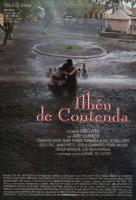Claire Andrade-Watkins
Articles tagged with Claire Andrade-Watkins
Tag Archive
- ...
- acting
- activists
- African cinema
- African Contemporary Art
- Afrique
- Afrolis
- Akwaaba Music
- Almada Negreiros
- Aqui
- archive
- artistic
- artists
- association tchiweka de documentation
- Barthélémy Toguo
- Basileia
- being mixed
- Biodiversity
- biography
- Cameroon
- Carnaval
- Celeiro
- Centro de Estudos Sociais
- circulação de saberes
- Claire Andrade-Watkins
- Conceição Evaristo
- controversy
- cooperação
- coronavirus
- COVID-19
- criolo
- diversidade
- documentary
- Edson Chagas
- eleições
- epistemologia
- ery claver
- estudantes
- favela
- Felwine Sarr
- Festival Alkantara
- Filipa César
- Flávia Gusmão
- fleeing
- fragment
- Globalization
- govern
- Guinea Bissau
- Haile Gerima
- Haiti
- Harare
- heritage
- historicism
- human condition
- identity
- imigration
- insurreições
- Interwinings: peripheral arts
- Ireland
- korubo
- kriolu
- Kurt Kohlstedt
- labels
- Lagos
- Language
- lucio lara
- Malcom X
- memoirs
- Milita
- museu da memória
- My Kaaba is HUMAN
- nairobi
- national liberation
- nicknames
- pele
- poesia caboverdiana
- poetry
- police brutaliy
- port-au-prince
- post-colonial
- programation
- Rabbit Hole
- Rachel Malaika
- Regina Guimarães
- resistance
- revista
- Robyn Orlin
- rural
- Salazar
- settlers
- sexuality
- Slavery
- Sociedades Africanas
- sudoeste
- tailors
- transatlantic
- trauma
- travelling
- Viriato da Cruz
- Visual Cultura
 It’s about contesting narratives: not only narratives about Africa, Africans, Capeverdeans, and about our diverse perspectives, but also narratives about what cinema is, and what it can be, who gets to watch and be watched, who gets to speak and be heard. It is slow but necessary work. It is the work of re-inscribing our collective imagination with images that belong to us and that, in turn, transform us, and then the world.
It’s about contesting narratives: not only narratives about Africa, Africans, Capeverdeans, and about our diverse perspectives, but also narratives about what cinema is, and what it can be, who gets to watch and be watched, who gets to speak and be heard. It is slow but necessary work. It is the work of re-inscribing our collective imagination with images that belong to us and that, in turn, transform us, and then the world. 